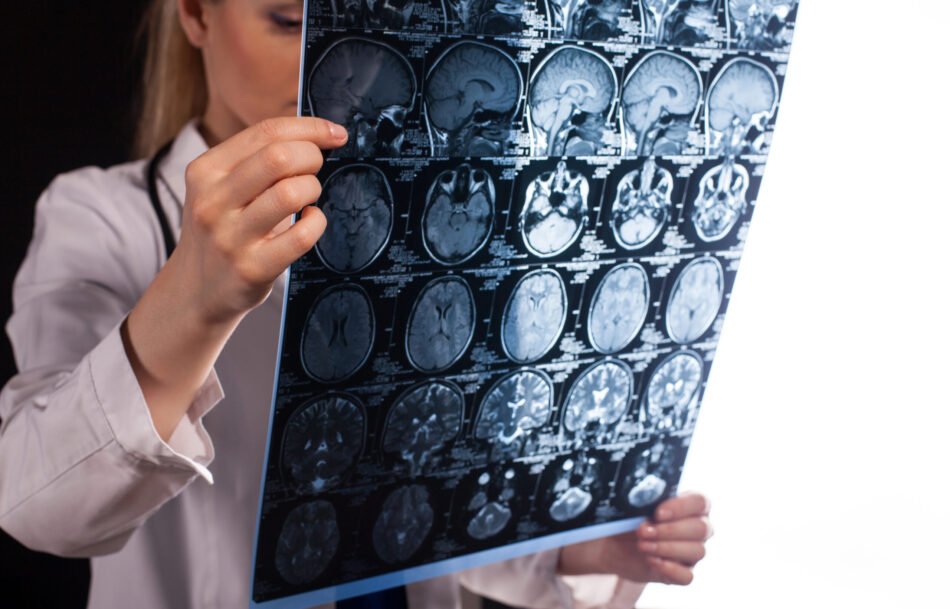Bridging Medicine and Law in Brain Injury Cases
Among the most challenging matters in the court system, brain damage claims may call for medical and legal expertise to establish causality, responsibility, and degree of damages. Under these conditions, medical specialists’ involvement is absolutely vital since their testimony can provide strong evidence to back claims. Medical testimony has shown quite useful in helping juries and judges understand the subtleties of brain damage, therefore improving the plaintiff’s case according to A Study By Davis, Saperstein & Salomon P,C.

Value of Brain Trauma’s Complications
Brain injuries cover mild concussions to severe traumatic brain injuries (TBIs) causing long-term cognitive, emotional, and physical disability. Unlike visible injuries, the symptoms and effects of brain injuries are often subtle and may show up over time, which makes diagnosis challenging and linkages difficult to prove directly to a single event. This complexity demands medical experts to evaluate clinical evaluations, imaging tests, and medical records in order to clearly show the extent of the damage on the victim’s life.
Establishing Causality and Liability
One of the key duties of medical practitioners in brain damage instances is proving causality—that the incident in issue actually led to the impairment. Medical history, chronology of events, and diagnostic findings help clinicians to find links between the traumatic incident and the damage. This is particularly crucial in cases when the defendant could argue that the damage was pre-existing or caused by another event.
A neurologist might testify, for instance, on how the forces in an automobile accident caused the plaintiff’s brain injury or a neuropsychologist could illustrate how the damage has compromised the victim’s cognitive ability. Medical experts can establish accountability by providing scientifically based evidence, therefore tying the defendant’s actions to the damage and so strengthening the case.
Indicating the Degree of Damage
Apart from proving causality, doctors greatly assist in estimating the degree of harm resulting from a brain injury. This also addresses outlining the victim’s financial, emotional, cognitive, physical, and life changes. Testimonies from neurologists, neuropsychologists, and rehabilitation specialists might help one to grasp the long-term prognosis and the need of lifelong medical therapy. A doctor might review, for example, the costs of assistive devices required for everyday life, physical rehabilitation, or psychiatric counseling. These components determine appropriate compensation and also ensure that the victim has the means to manage their harm.
Many times employing complex medical lingo and concepts a jury or judge would find difficult, brain injuries Acting as lecturers, medical practitioners highlight intricate details into logical language. Pictures, CT scans, MRI scans, or brain diagrams can help them illustrate the kind and results of the damage. Since it strengthens and persuasively tells a story, this helps non-medical specialists in the trial relate better to the medical aspects of the case.
Restoring Credibility
Credibility of the medical experts involved in a brain damage lawsuit will rely on their qualifications and standing. Judges and juries will probably trust testimony from experts with great experience, specialized training, and a history of peer-reviewed research in their field. This credibility can significantly impact the outcome of a case since well-founded, authoritative testimony can sway opinions and assist the plaintiff’s case.
In conclusion, medical experts are quite valuable in brain damage litigation since they offer essential insights that enable them to close the discrepancy between complex medical facts and legal arguments. From showing causality and guilt to assessing damages and guiding the court, their testimony prepares a compelling and credible case. As the study by Davis, Saperstein & Salomon P.C. shows, the involvement of experienced medical experts can make all the difference between a dismissed lawsuit and a successful claim. Knowing helps plaintiffs manage the difficult legal terrain of brain damage lawsuits and obtain the justice they are owed.


